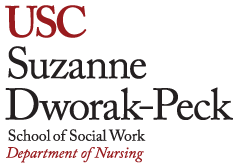Nursing shortages are hitting “crisis levels,” according to a 2022 report by health care company Relias, and that’s happening as demand remains robust for the industry. In fact, advanced nursing jobs including nurse practitioners, nurse anesthetists, and nurse midwives are expected to grow 40% between 2021 and 2031, according to the U.S. Bureau of Labor Statistics.
As a result, various types of advanced nursing roles can command six-figure salaries. Nurse practitioners, which often require a master’s degree in nursing to land, earn median salaries of more than $120,000, according to the BLS. A C-suite level job as a chief nursing officer has a salary range between $180,000 and more than $300,000, with the median salary landing right around $250,000, according to Salary.com. Other salary reporting sources cite average chief nursing salaries between $180,000 and $200,000.
While registered nurses and nurse practitioners work more with patients on a day-to-day basis, chief nursing officers (CNO) set the vision for the practice to provide “safe, timely, efficient, equitable, and patient-centered care,” Beth Brooks, a clinical adviser to Vivian Health, tells Fortune. Vivian Health is a national health care hiring platform that also provides employment data for nursing jobs.
CNOs are also tasked with improving the patient experience and reducing the per-capita cost of health care, Brooks adds. They develop and manage an annual operating budget as well as a long-term capital expenditure plan. Because some large health systems employ between 5,000 and 10,000 registered nurses (RNs), the “span of control can be large” for CNOs, she says.
“There is always a need for nurse leaders in executive practice—whether in community-based organizations, home care or hospice organizations, hospitals or health systems, long-term care or skilled nursing facilities, ambulatory and outpatient settings, primary care practices or boardrooms,” Brooks says.
Fortune sat down with Brooks, a registered nurse who also has her Ph.D. in nursing science, to identify four key steps to become a CNO. Brooks has held health care leadership positions at for-profit companies, universities, and health care systems. She also serves on four journal editorial boards, two journal review panels, and several advisory boards. Here’s a quick look at the steps she recommends:
- Earn a bachelor’s degree in nursing
- Continue your education with a master’s degree and/or a terminal degree
- Practice and show leadership in nursing
- Work to land managerial roles
1. Earn a bachelor’s degree in nursing
Many registered nurses complete a bachelor of science degree in nursing (BSN). A traditional BSN program takes four years to complete, although there are accelerated nursing programs offered at many top nursing schools that can take as little as 16 months to complete.
After earning your BSN, you must pass the National Council Licensure Examination (NCLEX) to get your RN license. Not only will you need your BSN to practice as an RN, but you’ll need it to apply to grad school. Earning a master’s degree in nursing will allow you to take that next step of becoming a nurse practitioner.
The median base salary for RNs is more than $77,000, BLS data shows.
“Generally speaking, a nurse who aspires to a leadership role will complete one-to-three years as a staff nurse leading a team to provide bedside nursing care, followed by experience as a charge nurse or assistant manager,” Brooks says. “Typically these are the entry-level management positions. After three-to-five years of management experience, many nurse leaders return to graduate school.”
2. Continue your education with a master’s degree and/or a terminal degree
In order to become a nurse practitioner (NP), nurse anesthetist, or a nurse midwife, you typically must earn at least a master’s degree in nursing. Many top nursing schools, including the Yale School of Nursing, offer online programs that typically take a couple years to complete.
Between May 2021 and April 2022, the number of NPs in the U.S. jumped 9% to more than 355,000, data from the American Association of Nurse Practitioners shows. Plus, Nearly 90% of NPs have a master’s degree, and about 5% have a doctorate in nursing, according to the National Institute for Health Care Management Foundation.
“Due to the complexity of today’s healthcare systems and the broad span of control, many CNOs also complete a terminal degree such as the science-based Ph.D. or clinically-based doctor of nursing practice in executive leadership,” Brooks says. Some chief nursing officers may also earn an MBA, a master’s in health administration (MHA), or a master’s in public health (MPH), she adds.
3. Practice and show leadership in nursing
Because the CNO role requires experience overseeing up to thousands of nurses, a good first step in your path to the C-suite is to gain management experience by overseeing smaller units.
“The best way to prepare for a career in nursing executive practice is to volunteer to lead project teams at the unit or department level such as quality improvement, patient safety, value-chain analysis and the like,” Brooks says.
Many nurses aspiring for the C-suite also chair shared-leadership committees, evidence-based practice, policy and procedures, and innovation committees, she adds.
4. Work to land managerial roles
Beyond leading project teams or smaller units, CNOs typically progress through the ranks by becoming a department manager with around-the-clock accountability, Brooks says. Then, nurse executive leaders who aspire to the C-suite will work toward promotions as a vice president, executive vice president, senior vice president, or a chief nursing executive.
Often, the CNO will also be responsible for other clinical areas including pharmacy, nutritional services, radiology, and respirateory therapy, Brooks adds.
“Nursing executive practice is a dynamic, rewarding and challenging specialty area within the nursing profession,” Brooks says. It requires “business acumen, communication and negotiation skills, emotional intelligence, and leadership focused on quality patient outcomes.”
Check out all of Fortune’s rankings of degree programs, and learn more about specific career paths.








